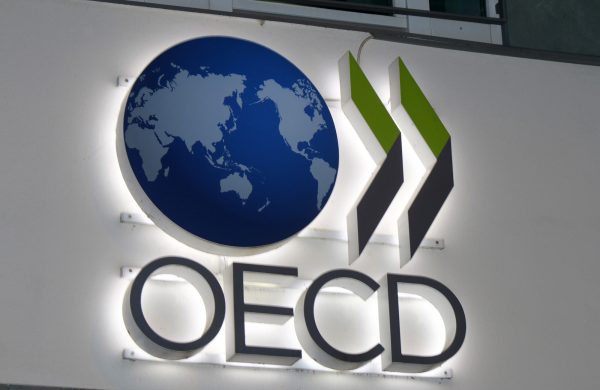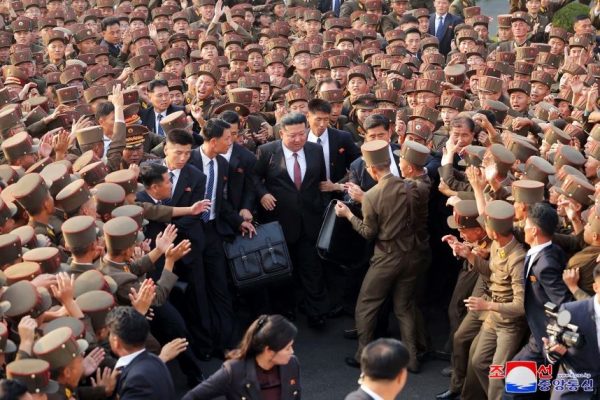Last week, the Organization for Economic Cooperation and Development (OECD) announced that it would open accession talks with Indonesia, after receiving the approval of the group’s 38 members. In a statement announcing the decision on February 20, OECD Secretary-General Mathias Cormann described the move as “historic.”
“Indonesia’s application is the first from Southeast Asia, one of the most dynamic growth regions of the world,” Cormann said. “As the largest economy in Southeast Asia and the world’s third-largest democracy, Indonesia is a significant global player, providing important leadership across its region and beyond.”
The OECD includes 38 nations, most of them in Europe and North America. As Nikkei Asia notes, Indonesia became an OECD “key partner” in 2007 and in 2014 helped launch the organization’s Southeast Asia program. OECD countries and the organization’s key partners represent about 80 percent of world trade and investment.
The accession process is open-ended, and there is no timeline for Indonesia to become a member. It is probably unlikely to happen anytime soon. As the OECD itself explains, becoming a member “is not a simple formality but is the result of an increasingly rigorous review process.”
According to the OECD statement, a draft accession road map will be prepared for the consideration of the OECD Council at its next meeting. The review process will then include a “rigorous and in-depth evaluation by more than 20 technical committees of Indonesia’s alignment with OECD standards, policies and best practices.”
Membership of the OECD would help Indonesia fulfill its goal of becoming an advanced economy by 2045, when it will mark the centennial of its independence – a goal that President Joko “Jokowi” Widodo’s administration has referred to as “Indonesia Emas,” or Golden Indonesia. As Indonesia’s Coordinating Minister of Economic Affairs Airlangga Hartarto said in August, shortly after Indonesia officially expressed its intention to join the group, “The standards from OECD will become benchmarks and best practices at the same time as peer support for the development in Indonesia.” At the same time, should Indonesia survive the accession process, foreign investors would view this as a vote of confidence in the nation as a business destination.
For its own part, the OECD has strong reasons to bring Indonesia into its tent. By the Indonesian government’s 2045 deadline, Indonesia is projected to become the world’s fourth-largest economy, and it is almost inconceivable that the OECD – a group sometimes referred to as a “rich-country club” – would not lay out a path to membership for the country.
There is also a desire to shrug off the OECD’s reputation as a Euro-American club, representing the interests of European and North American nations. Of its 38 members, only Japan and South Korea are from Asia, one of the world’s most economically dynamic regions. (The region’s two economic giants, China and India, have not sought membership.) As Cormann said in his statement last week, “Indonesia engaging in this process with the OECD as an accession country will also help to further strengthen our Organisation’s global relevance and impact.”
The review and accession process will likely become a key priority for the incoming administration of Prabowo Subianto, who has pledged to carry on Jokowi’s policies. However, while Indonesia claims to have implemented 15 of the 200 OECD standards, and has previously expressed its goal of completing accession talks within four years, it is an open question whether the process will be finished by the time Prabowo’s first term comes to an end in 2029.
As Retno Marsudi and Andriansyah wrote last year for the Lowy Institute’s Interpreter blog, there are five priority areas for OECD evaluations on accepting a new member: “structural reform, an open trade and investment regime, social and equal opportunity policies, public governance and anti-corruption efforts, and environmental protection.” Indonesia currently falls short in all five of these areas, to varying extents, and Jakarta’s willingness to use the power of the state to protect local industries and maintain political and economic stability – including its complex register of energy subsidies and its industrial policy around nickel mining and processing – no doubt exist in tension with the principle of an “open trade and investment regime.”
This hints at a deeper tension identified by the above authors, that the OECD “is overly focused on the interests of developed countries and therefore does not appropriately consider the needs and perspectives of developing countries because their economic structures, demands, and interests diverge over time.” Jokowi’s administration has justified its market interventions on the need to redress historic inequalities between the developed and developing worlds, as well as on the grounds that many rich Western nations used similar methods to develop their own economies.
In any event, the need to align Indonesia’s domestic legislation and policies to meet the OECD’s criteria could be politically rocky for the Prabowo administration. Just how fraught this can be was demonstrated by the contentious jobs creation law – an omnibus package of business-friendly legislation – passed by Parliament in October 2020. This revised more than 70 other laws in order to cut red tape and make Indonesia a more attractive destination for foreign investment. But the passage of the law was met immediately by protests. When the Constitutional Court ordered Jokowi’s administration to make changes to the law, the president responded in late 2022 by signing an emergency regulation that essentially forced the changes by executive fiat. The emergency regulation was subsequently approved by Parliament last year.
With last week’s announcement, Indonesia took its first important step. But the road to OECD membership, and the sunlit uplands of “Golden Indonesia,” is likely to be long and winding.





















Discussion about this post